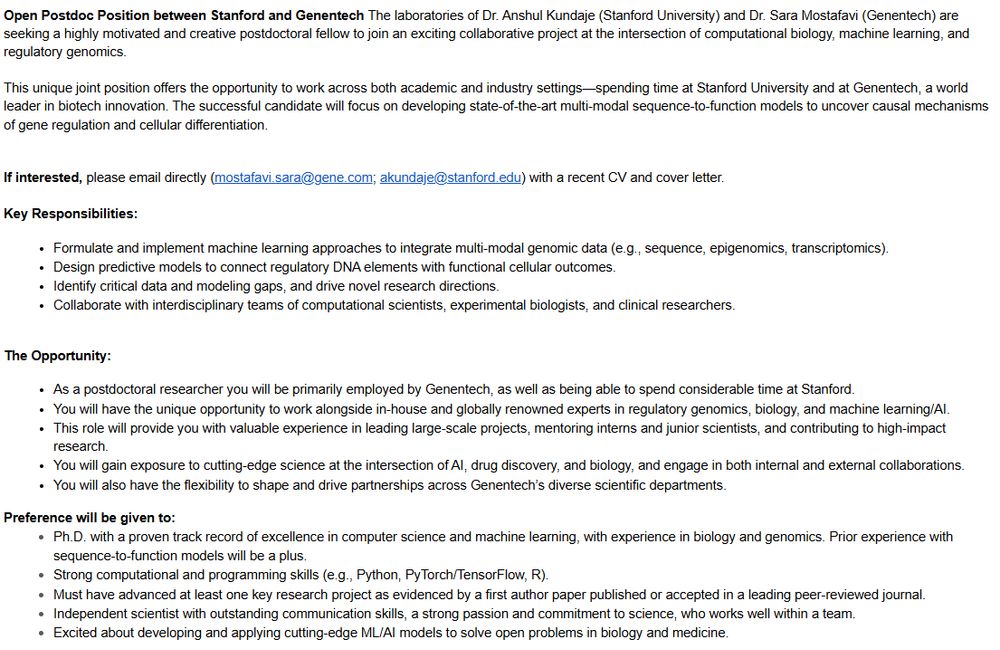Sara Mostafavi
@saramostafavi.bsky.social
240 followers
51 following
4 posts
VP, Genentech
Associate Professor at the Allen School of Computer Science and Engineering, University of Washington (on leave)
Posts
Media
Videos
Starter Packs
Reposted by Sara Mostafavi
Sara Mostafavi
@saramostafavi.bsky.social
· Apr 17
Sara Mostafavi
@saramostafavi.bsky.social
· Apr 16

Deep genomic models of allele-specific measurements
Allele-specific quantification of sequencing data, such as gene expression, allows for a causal investigation of how DNA sequence variations influence cis gene regulation. Current methods for analyzin...
www.biorxiv.org
Sara Mostafavi
@saramostafavi.bsky.social
· Mar 15

Investigating Data Size, Sequence Diversity, and Model Complexity in MPRA-based Sequence-to-Function Prediction
We created the MPRA Dataset Collection (MDC), a curated resource of MPRA data from 12 studies comprising over 150 million labeled DNA subsequences. These datasets include both random and natural genom...
www.biorxiv.org
Sara Mostafavi
@saramostafavi.bsky.social
· Feb 23

A scalable approach to investigating sequence-to-expression prediction from personal genomes
A key promise of sequence-to-function (S2F) models is their ability to evaluate arbitrary sequence inputs, providing a robust framework for understanding genotype-phenotype relationships. However, despite strong performance across genomic loci , S2F models struggle with inter-individual variation. Training a model to make genotype-dependent predictions at a single locus-an approach we call personal genome training-offers a potential solution. We introduce SAGE-net, a scalable framework and software package for training and evaluating S2F models using personal genomes. Leveraging its scalability, we conduct extensive experiments on model and training hyperparameters, demonstrating that training on personal genomes improves predictions for held-out individuals. However, the model achieves this by identifying predictive variants rather than learning a cis-regulatory grammar that generalizes across loci. This failure to generalize persists across a range of hyperparameter settings. These findings highlight the need for further exploration to unlock the full potential of S2F models in decoding the regulatory grammar of personal genomes. Scalable software and infrastructure development will be critical to this progress. ### Competing Interest Statement The authors have declared no competing interest.
www.biorxiv.org
Reposted by Sara Mostafavi
